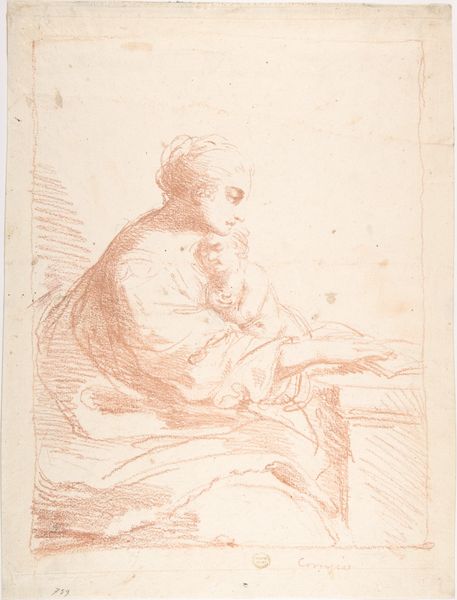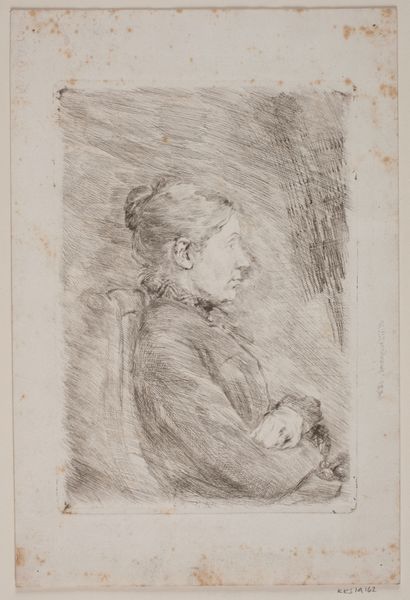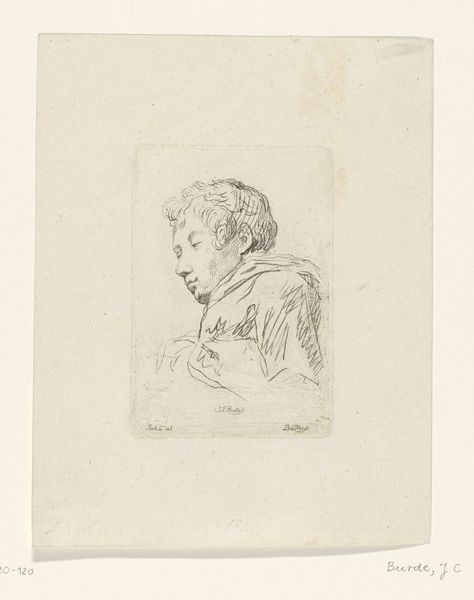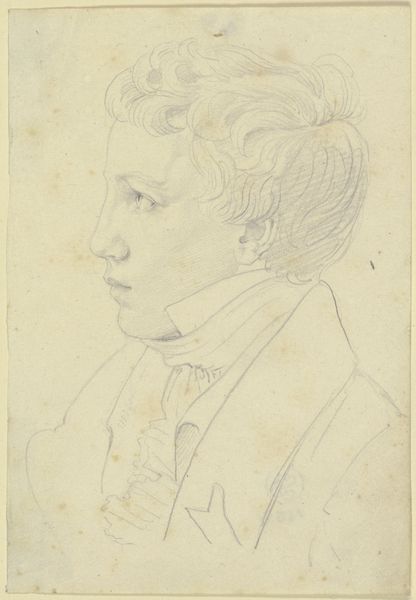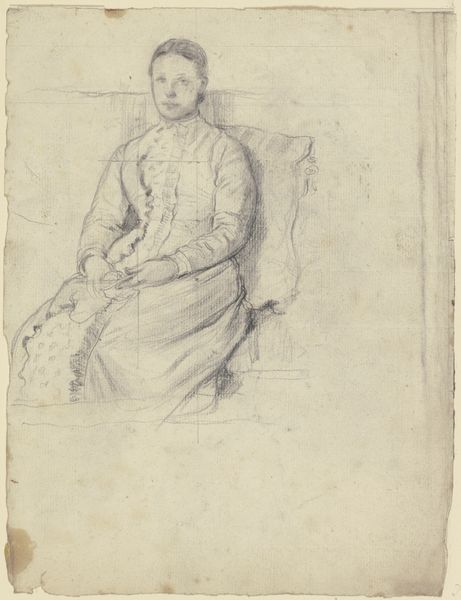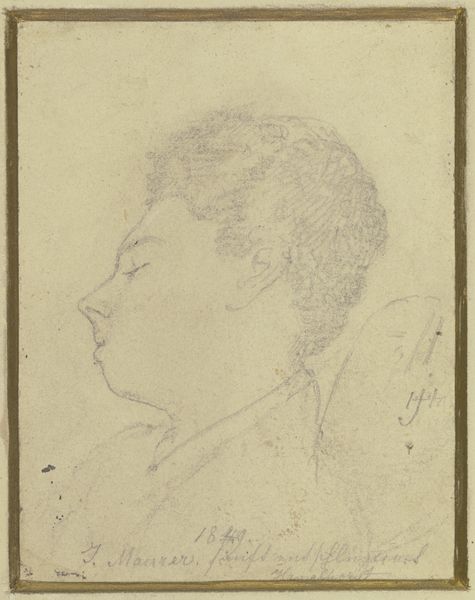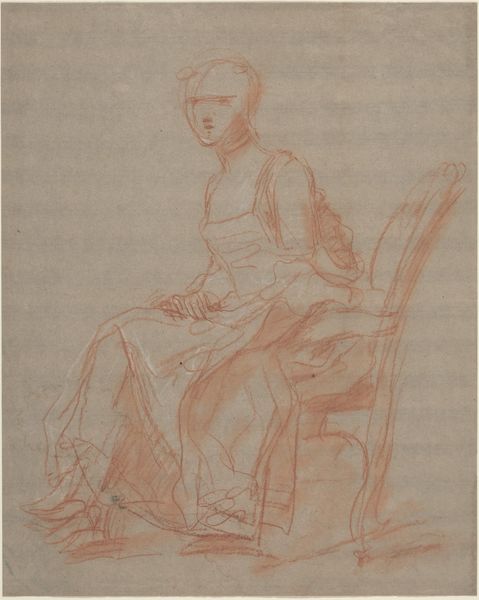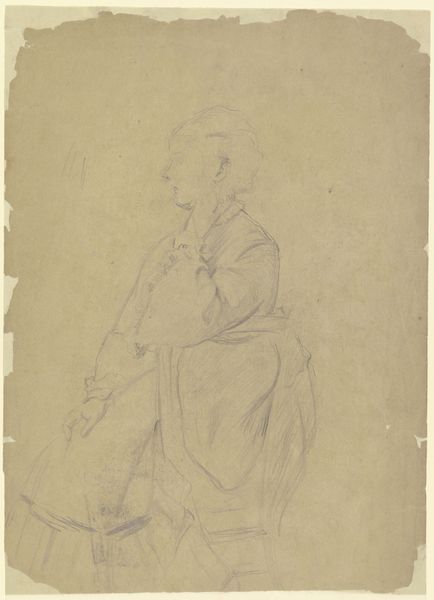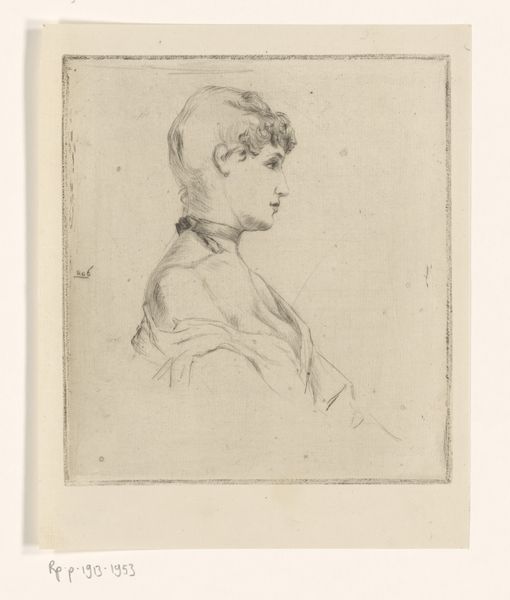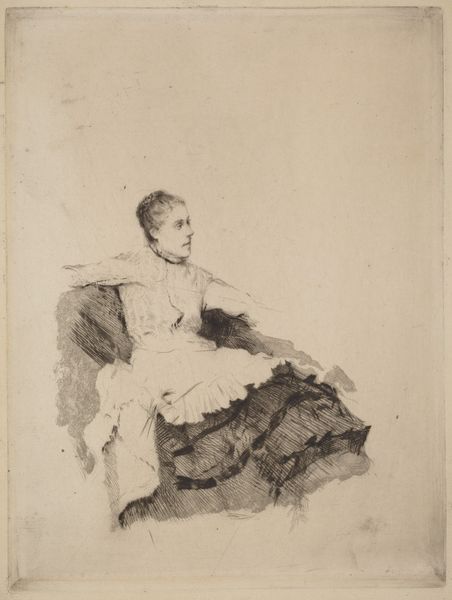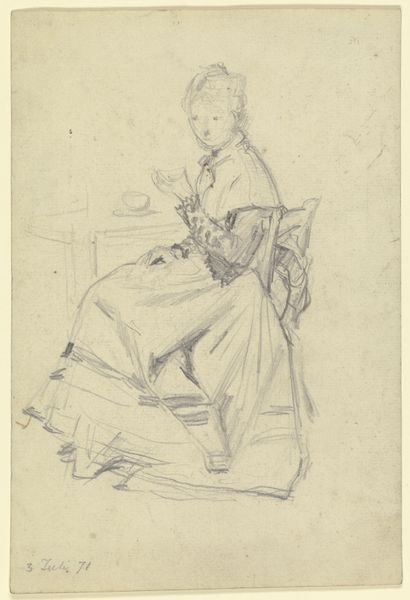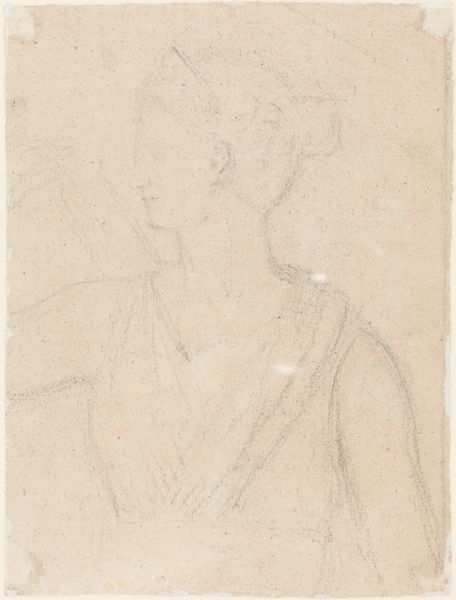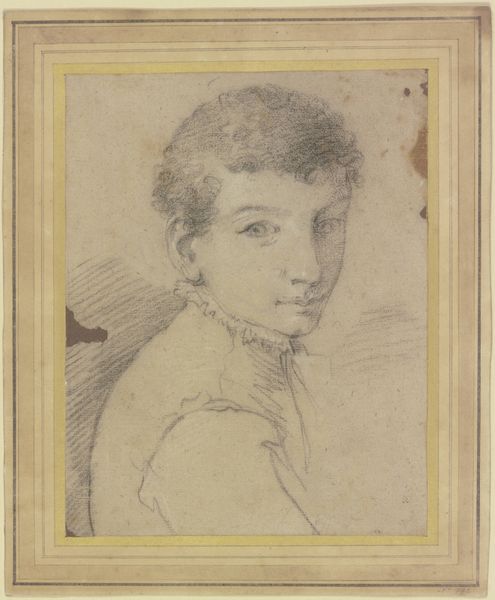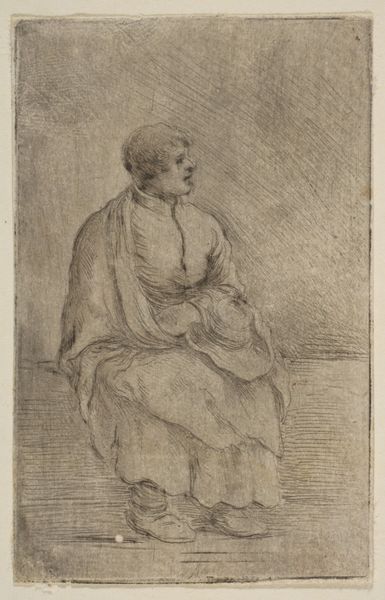
drawing, pencil
#
portrait
#
drawing
#
neoclacissism
#
self-portrait
#
pencil
#
history-painting
Dimensions: 150 mm (height) x 123 mm (width) (bladmaal)
Editor: So this is Erik Pauelsen's "Portrait of a Painter (Self-Portrait)," created in 1776 using pencil. It strikes me as quite stark, almost unfinished, and yet there's a clear personality coming through. What do you see in this piece? Curator: The self-portrait speaks to me of ambition tempered by reality. The visible pencil strokes, the lack of color, the unfinished quality...these aren't defects, but rather indicators. Pauelsen presents himself as a working artist, caught in the act, not as a polished, untouchable master. Do you notice what he holds in his hand? Editor: It looks like a palette. Curator: Exactly! It’s a direct symbol of his profession, his identity. Consider also the era – Neoclassicism was ascendant. Artists looked to the past for inspiration, but Pauelsen grounds himself in his present. The very act of self-representation contains potent cultural memory, a declaration. What kind of continuity do you see? Editor: I guess he's connecting himself to a longer line of artists representing themselves. But by showing the work-in-progress, he also seems to be demystifying the whole process, showing the human effort behind the art. Curator: Precisely. The vulnerability is compelling. He’s not presenting a perfected image, but rather an authentic, developing one. This links him to a continuous, evolving artistic journey, and challenges the heroic notion of a lone genius, don't you think? Editor: Absolutely. It makes you wonder about his place in art history and what symbols future artists will carry forward. It shifts my perception entirely, from seeing a simple sketch to recognizing a complex statement about artistic identity. Curator: It truly is a powerful symbol of his legacy.
Comments
No comments
Be the first to comment and join the conversation on the ultimate creative platform.
